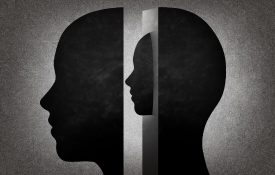-
5 Proven Benefits Of Play
It may be a new school year, yet I come to sing the praises of trampolines and bubble-blowing, pillow forts and peekaboo, Monopoly and Marco Polo. A new paper in the journal Pediatrics summarizes the evidence for letting kids let loose. "Play is not frivolous," the paper insists, twice. "It is brain building." The authors — Michael Yogman, Andrew Garner, Jeffrey Hutchinson, Kathy Hirsh-Pasek and Roberta Michnick Golinkoff — ask pediatricians to take an active role by writing a "prescription for play" for their young patients in the first two years of life.
-
Why liars lie: What science tells us about deception
We all do it sometimes, even though we know it’s wrong. But here’s the problem with lying: Research shows that the more you lie, the easier it gets, and the more likely you are to do it again. “The dangerous thing about lying is people don’t understand how the act changes us,” said Dan Ariely, behavioral psychologist at Duke. Lying is in the news this week after President Trump's longtime lawyer testified that Trump had directed him to pay hush money to a porn star named Stormy Daniels just before the 2016 election. The courtroom admission not only implicated Trump in a crime, it also exposed months of denials by Trump and his aides as lies.
-

Replication Project Investigates Effect of Moral Reminders on Cheating Behavior
A large-scale replication effort did not reproduce previous findings showing that people are less likely to cheat on a task after making a list of the Ten Commandments.
-

Myth: People With Mental Illness Are More Prone to Violence
Instructors should be prepared to listen for —and challenge — belief perseverance, and can use this myth to highlight how automatic and difficult belief perseverance can be to overcome.
-
EAMMi2: The Last Teaching Data Set Any Instructor Will Ever Need
Jon Grahe is a professor of psychology at Pacific Lutheran University. With help from an APS Teaching Fund Small Grant, I worked with a team of 35 colleagues to administer the project Emerging Adulthood Measured at Multiple Institutions 2: The Next Generation (EAMMi2). The EAMMi2 was designed to benefit science through the generation of survey data to answer important research questions related to emerging adulthood — such as identifying psychometric properties common to emerging adulthood; examining the relationship between disability identity and well-being; and probing the relationships between political events, stress, and health.
-
New Research From Clinical Psychological Science
Read about the latest findings publishing in Clinical Psychological Science: The Future of Intervention Science: Process-Based Therapy Stefan G. Hofmann and Steven C. Hayes The medical illness model, which assumes that symptoms reflect a latent disease that should be targeted with a specific therapy protocol, has been the norm in clinical science, but this seems to be changing. Hoffman and Hayes consider the developments in the field that allow for a move toward process-based therapy (PBT), especially in cognitive-behavioral therapy.

